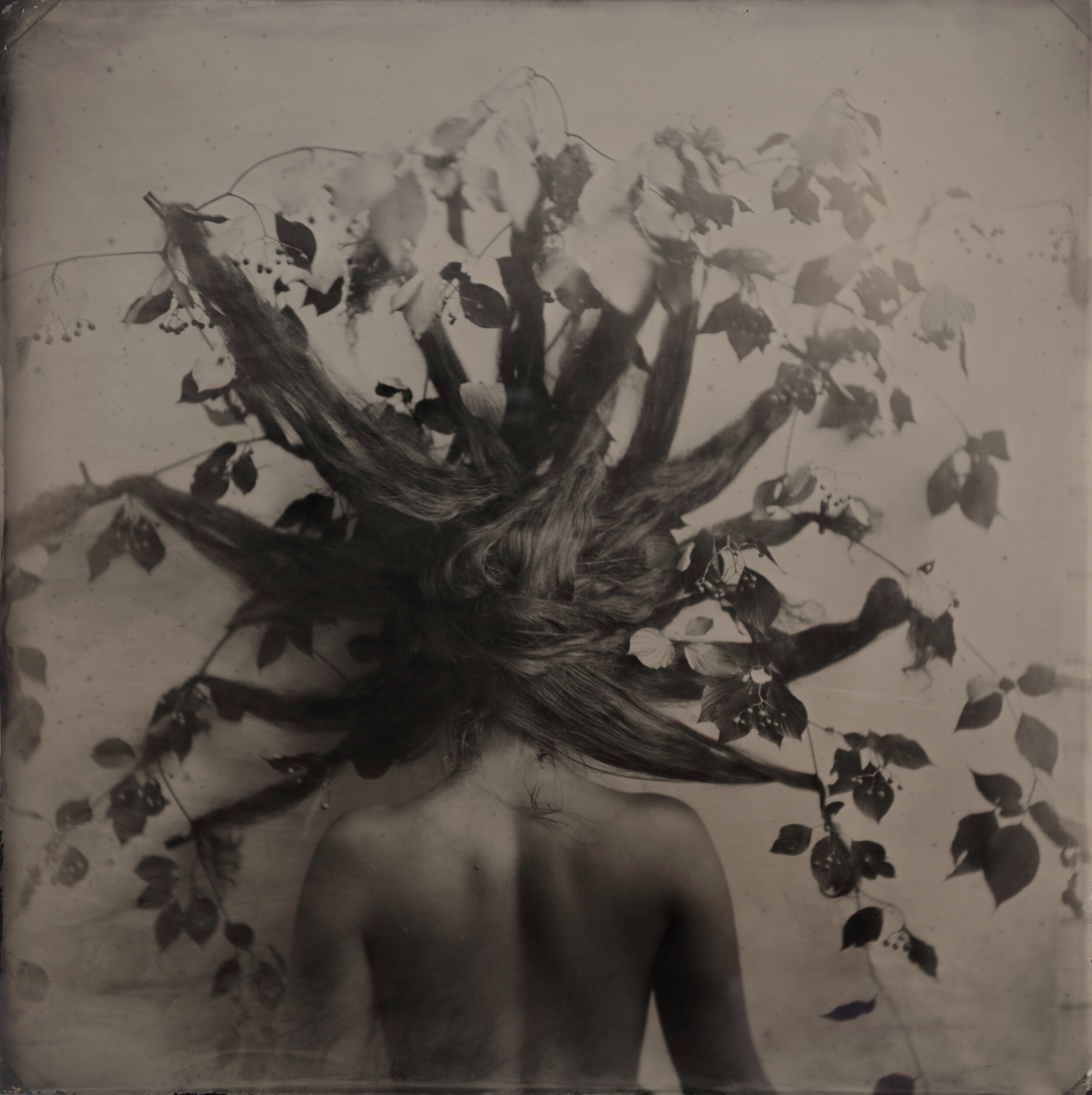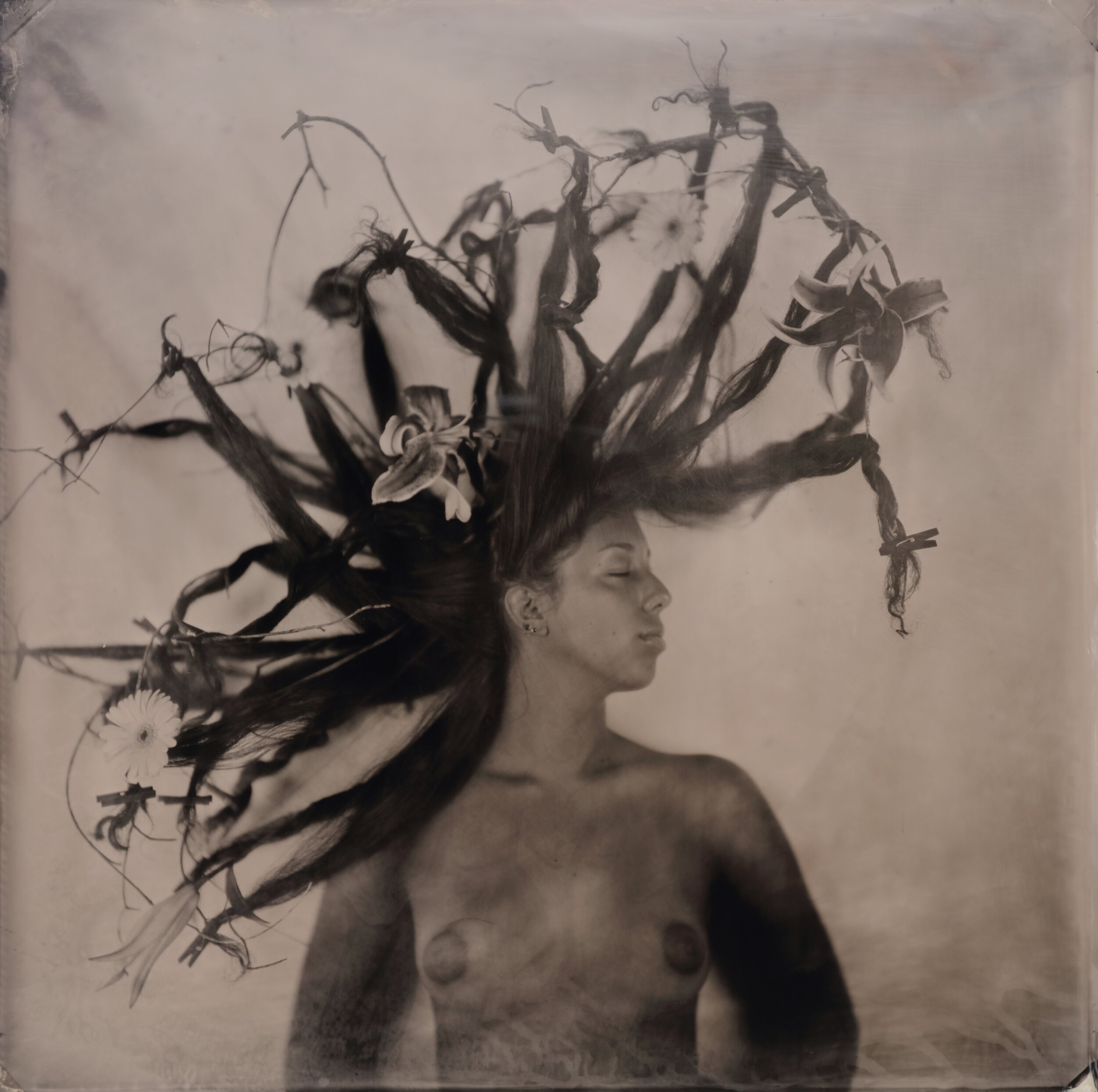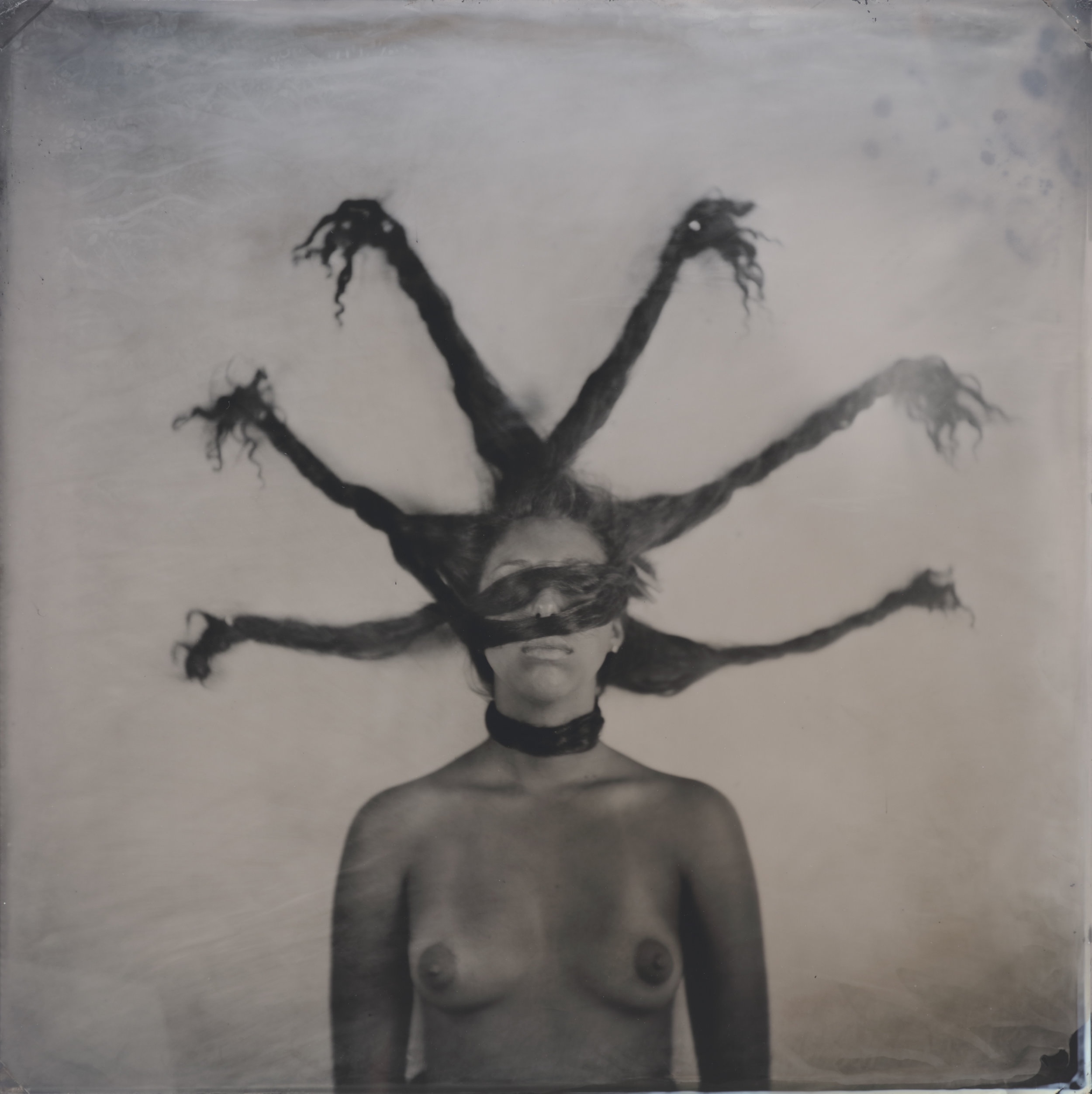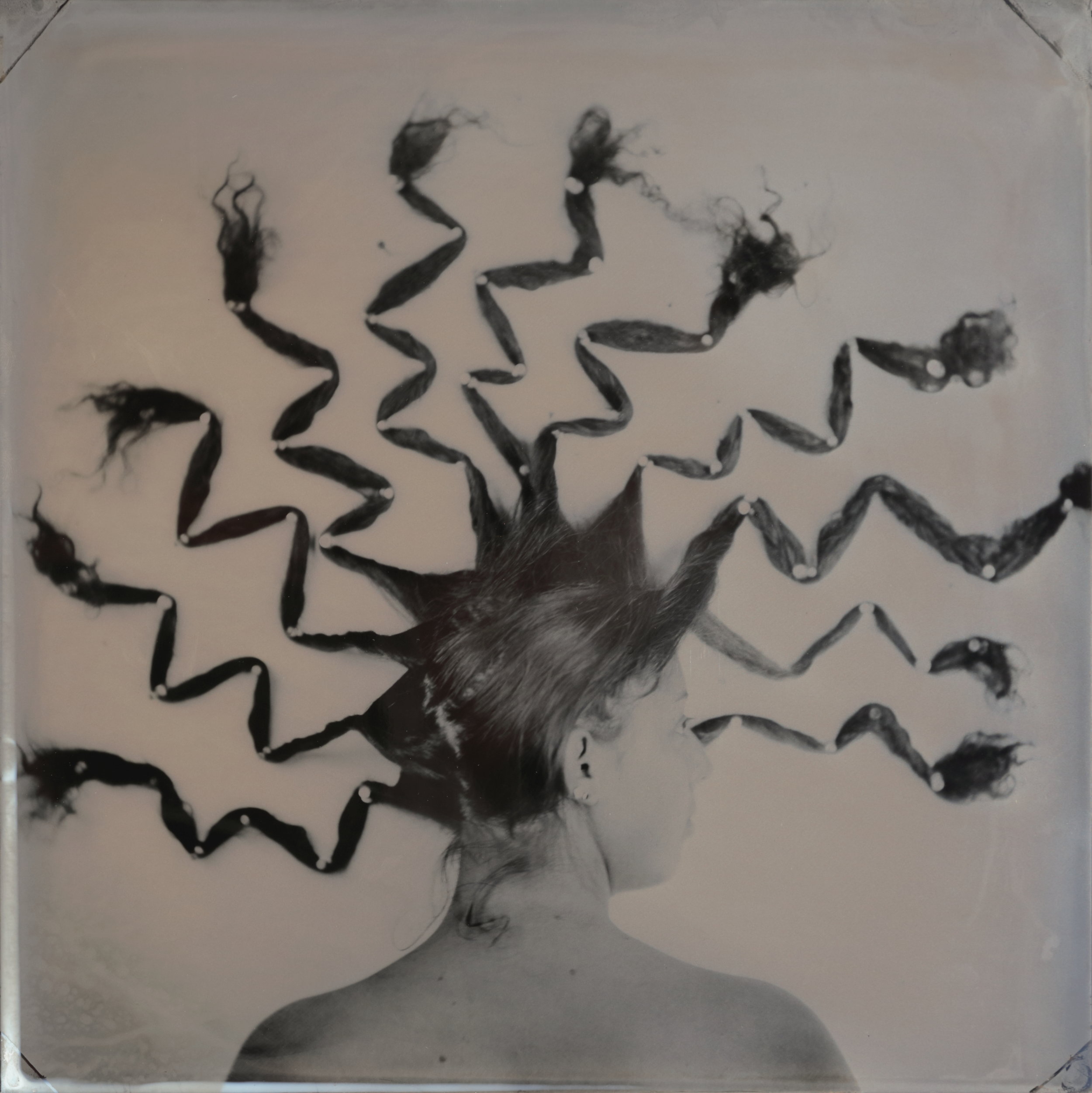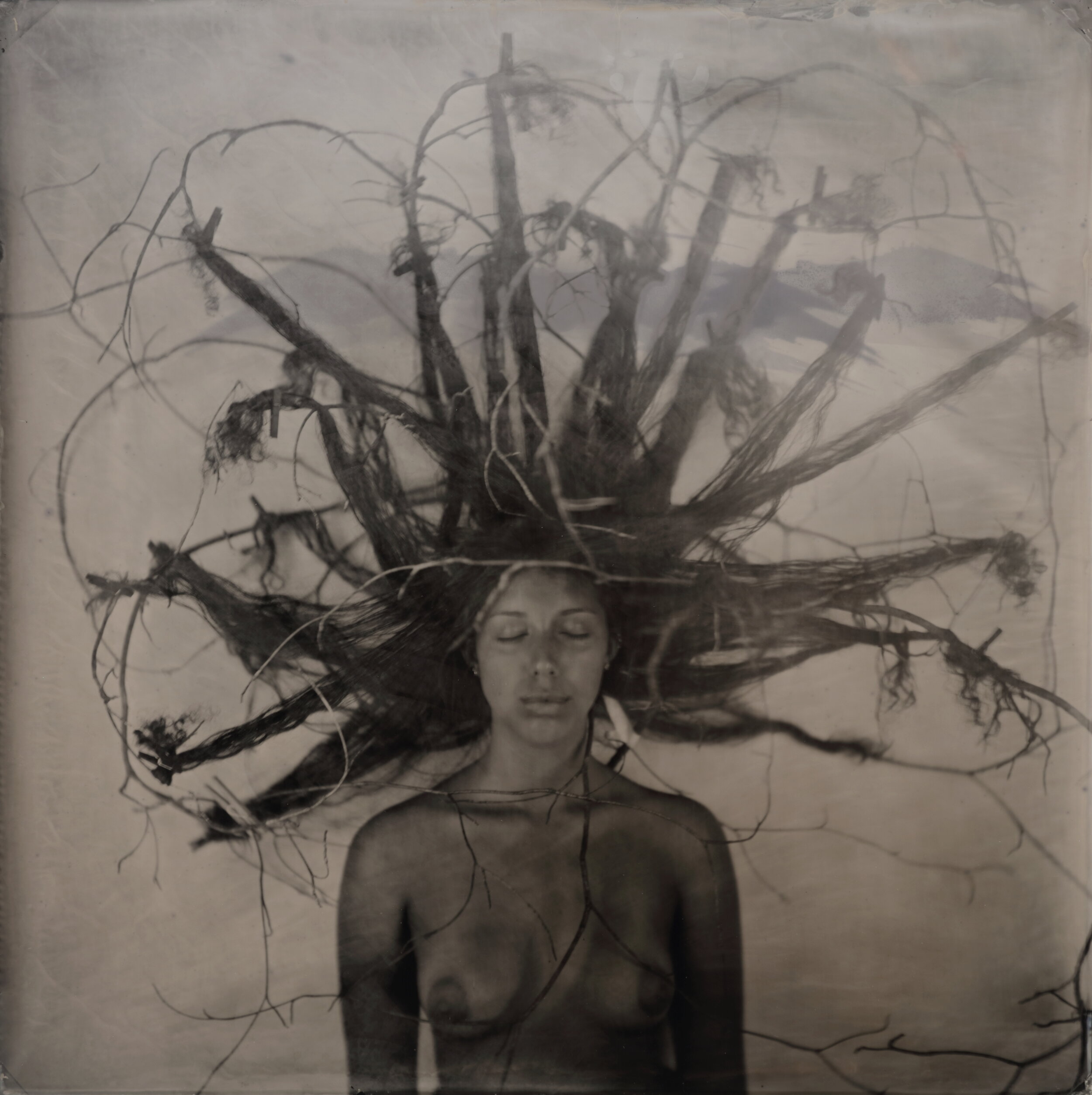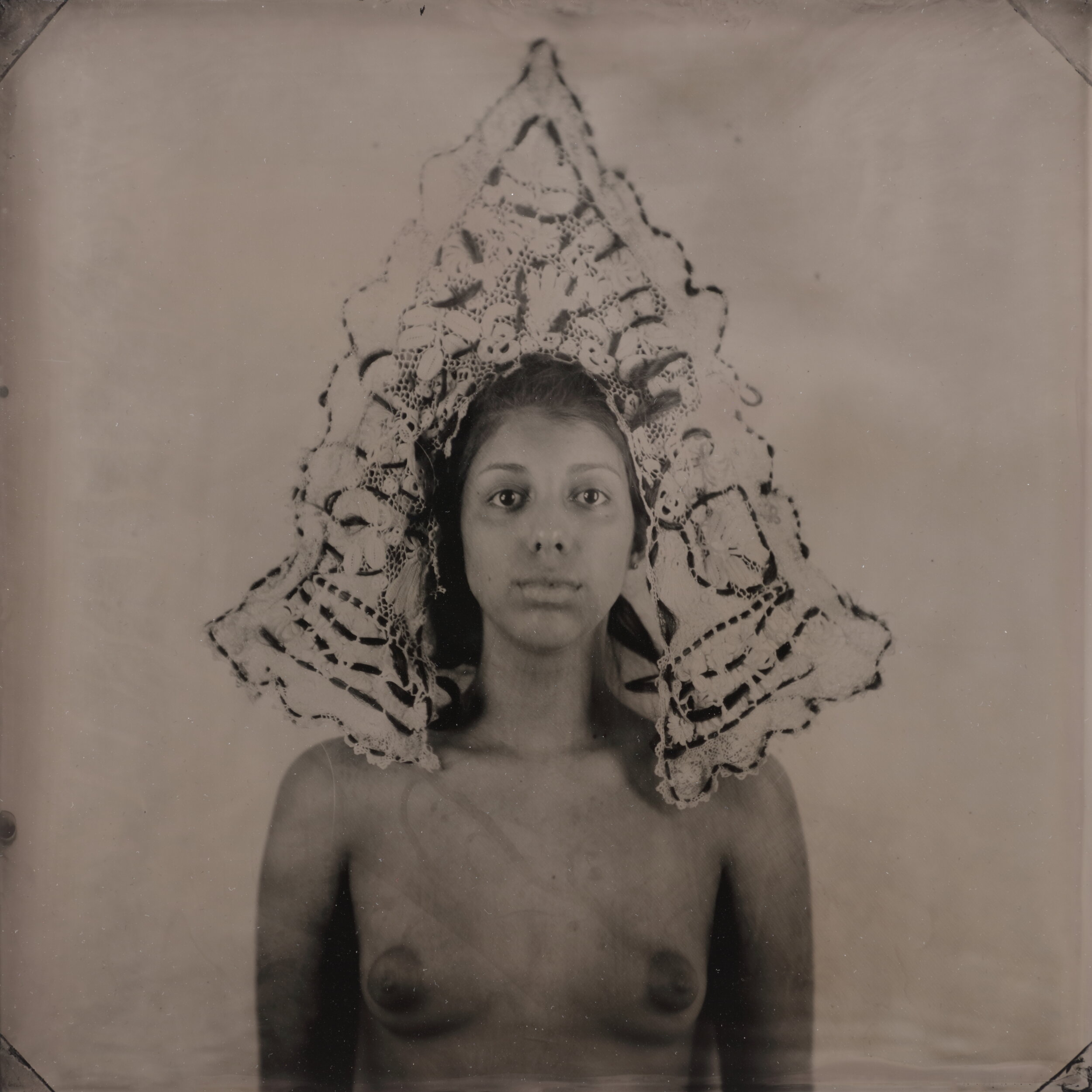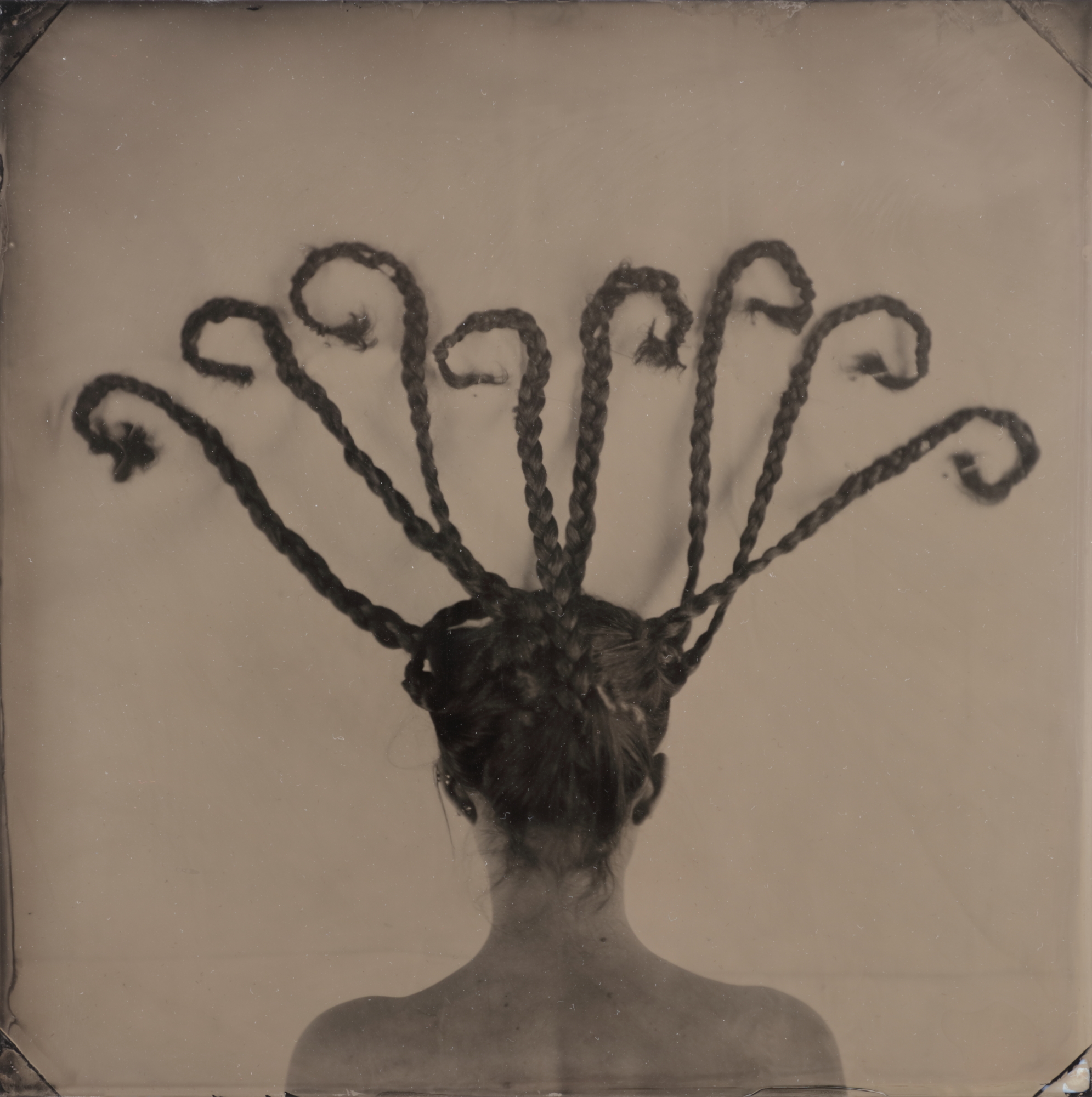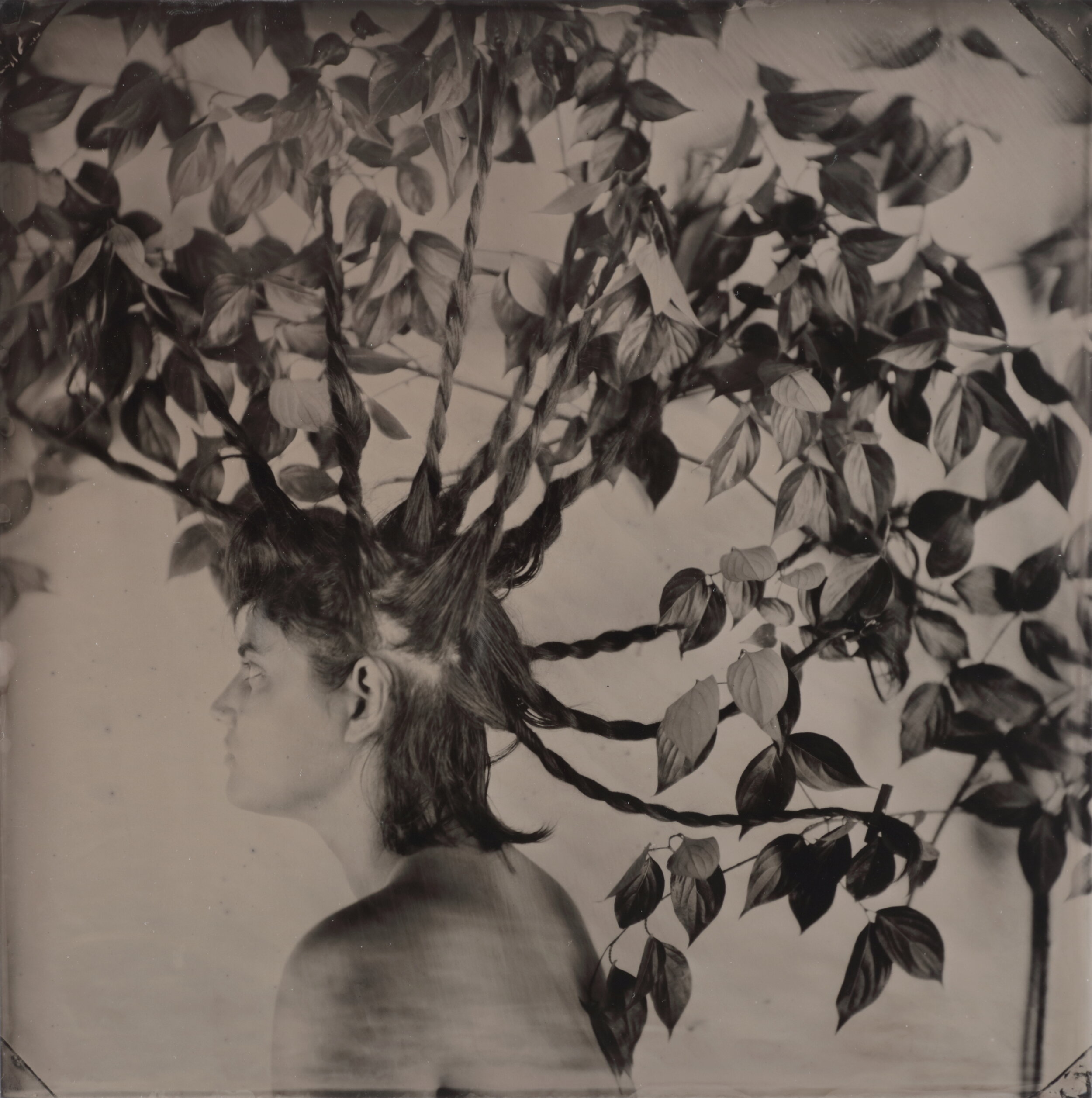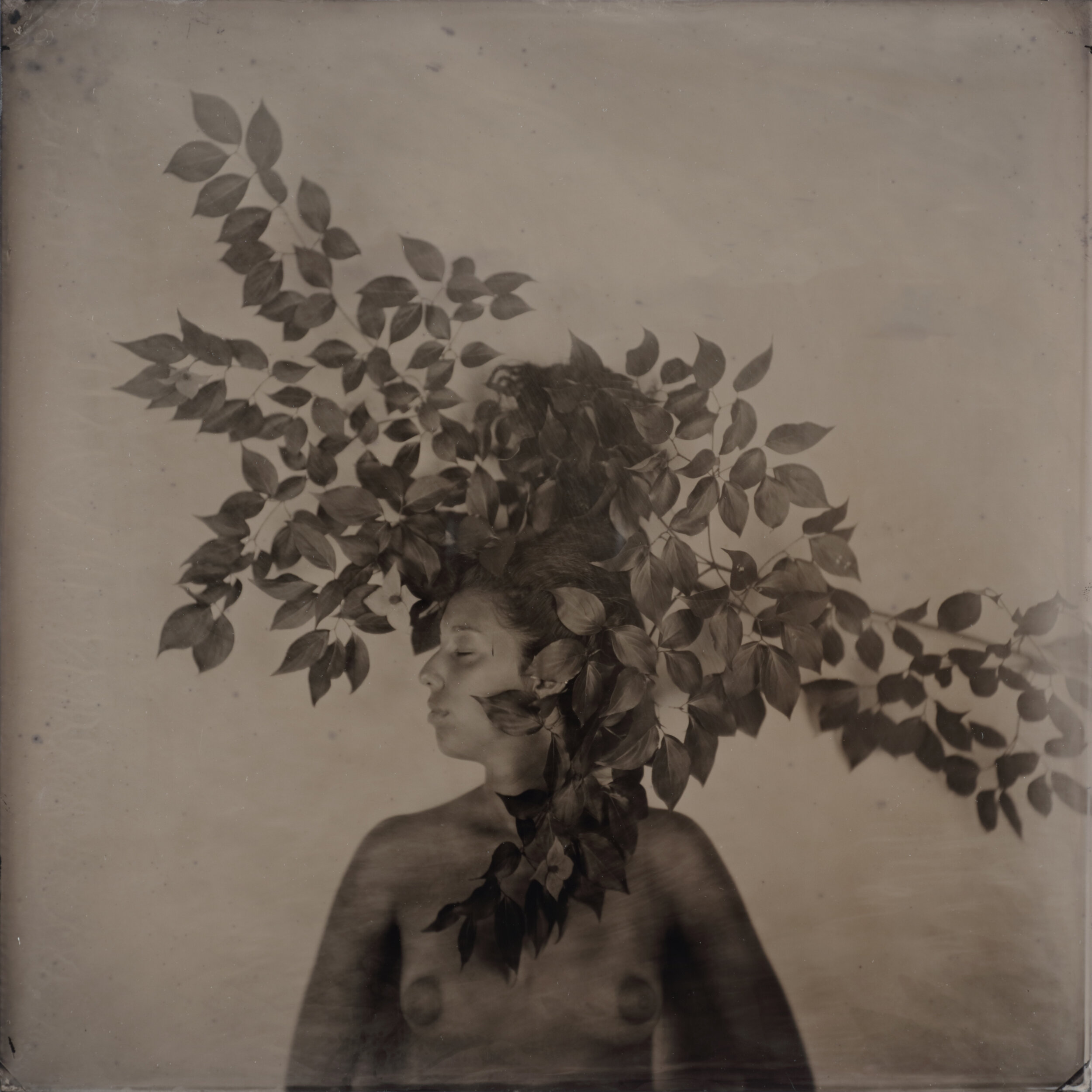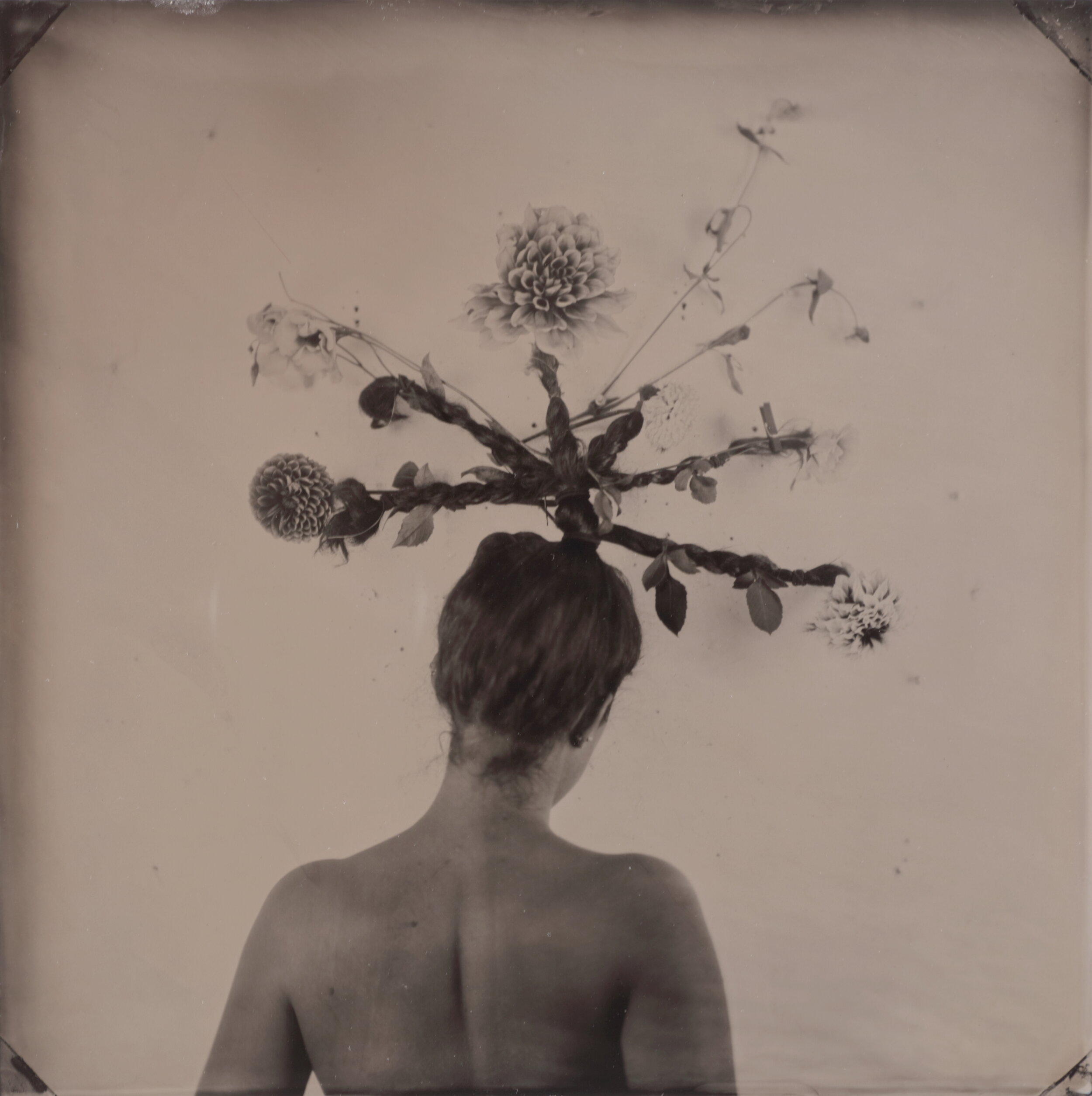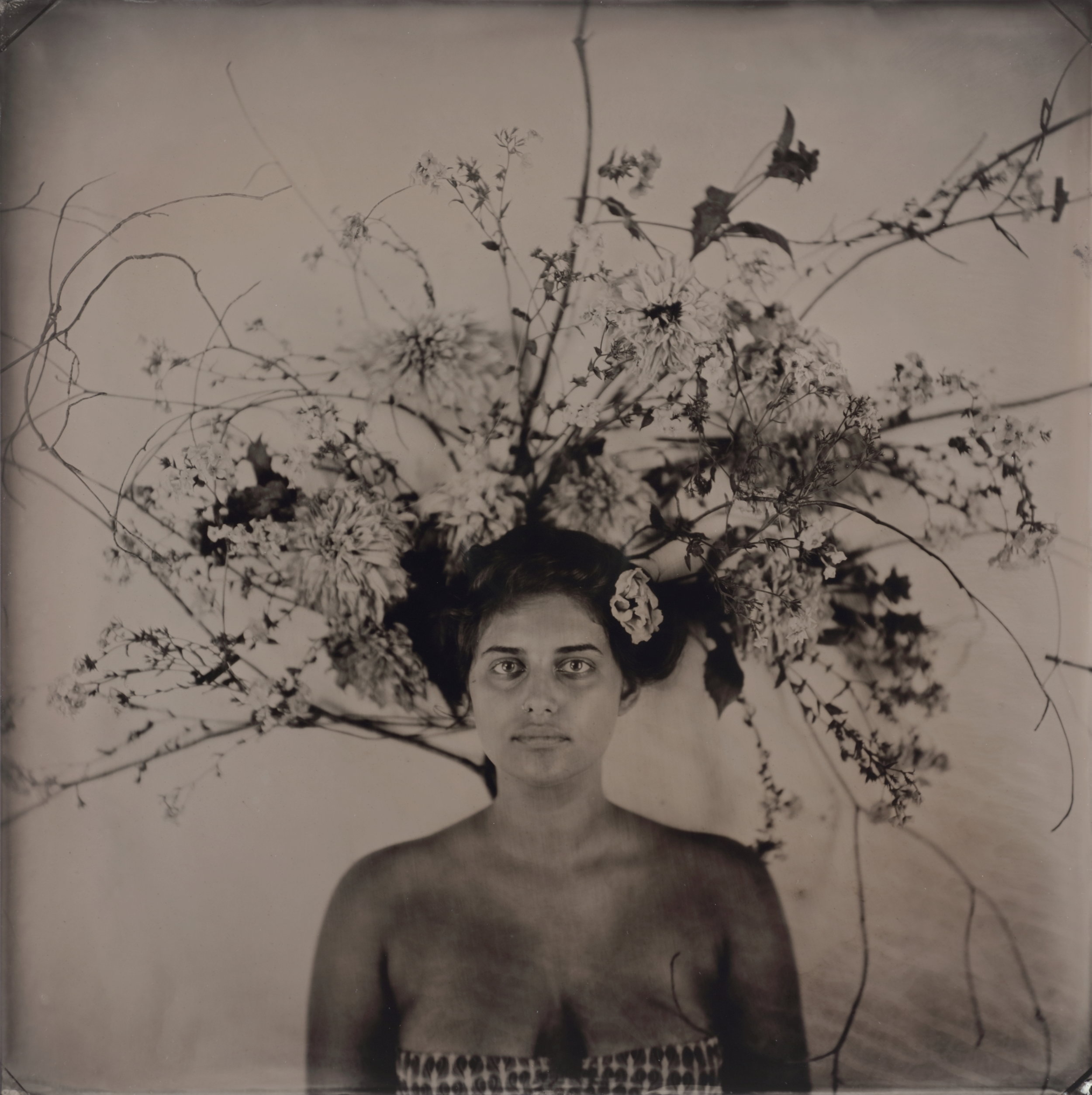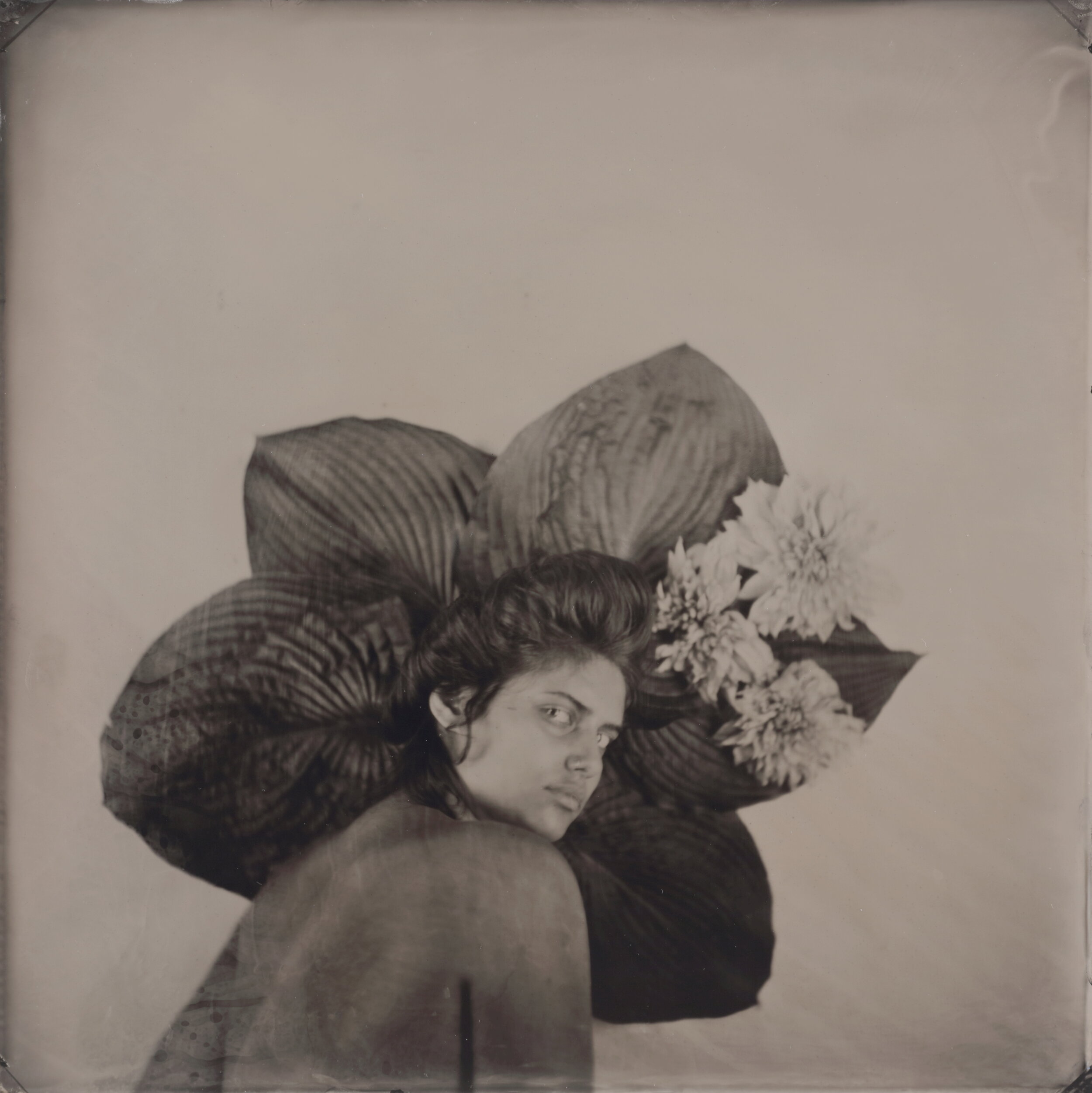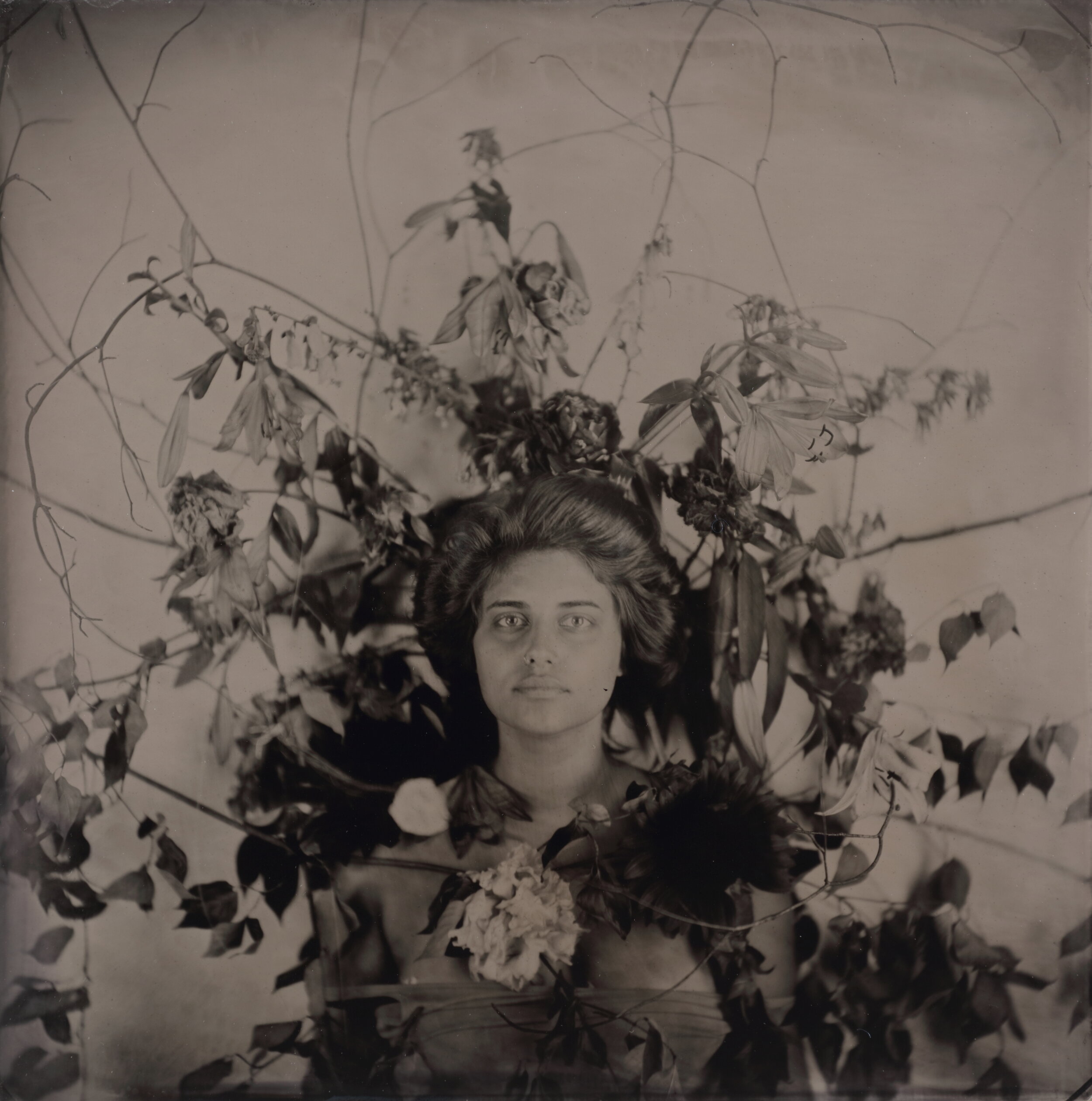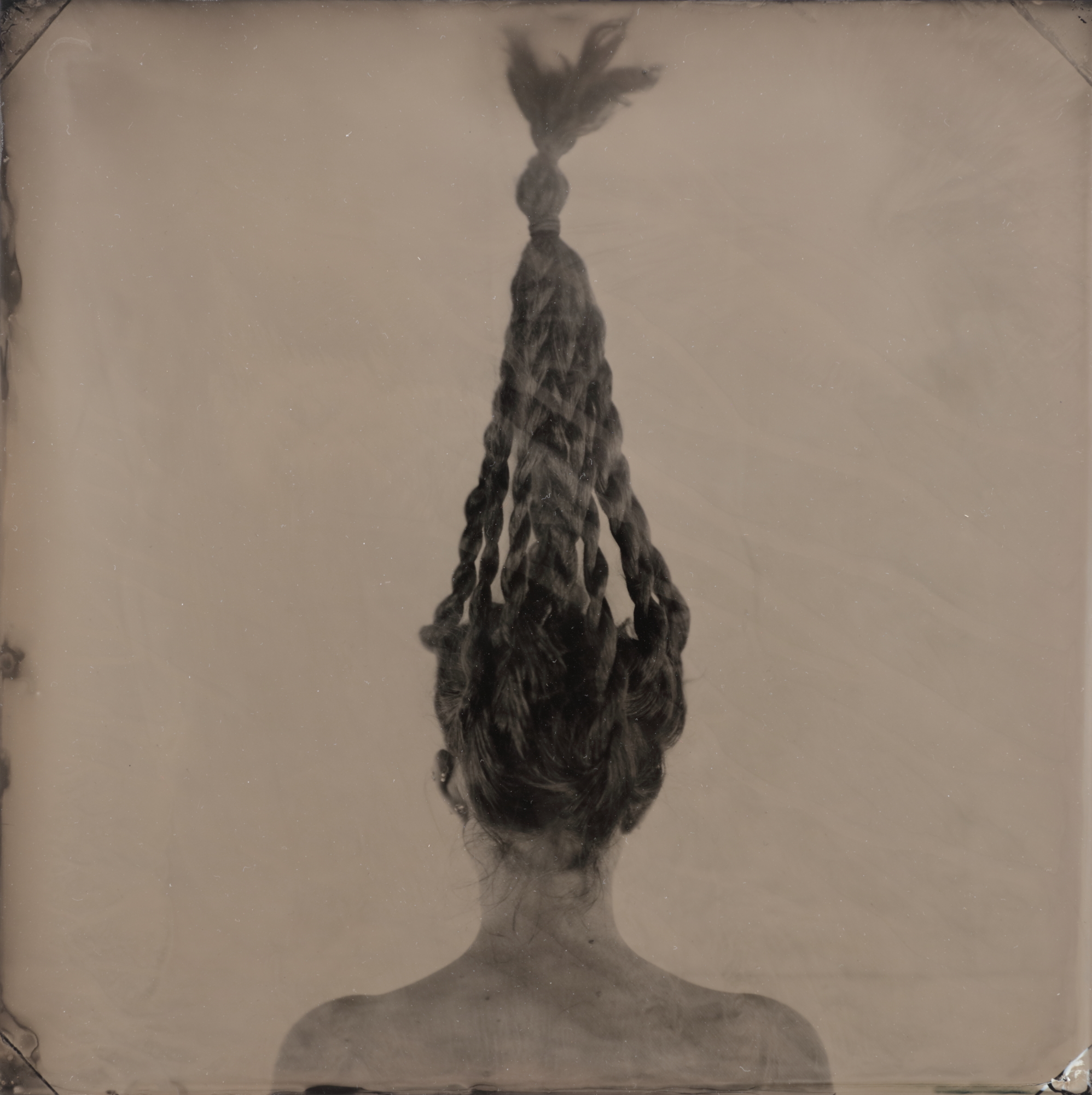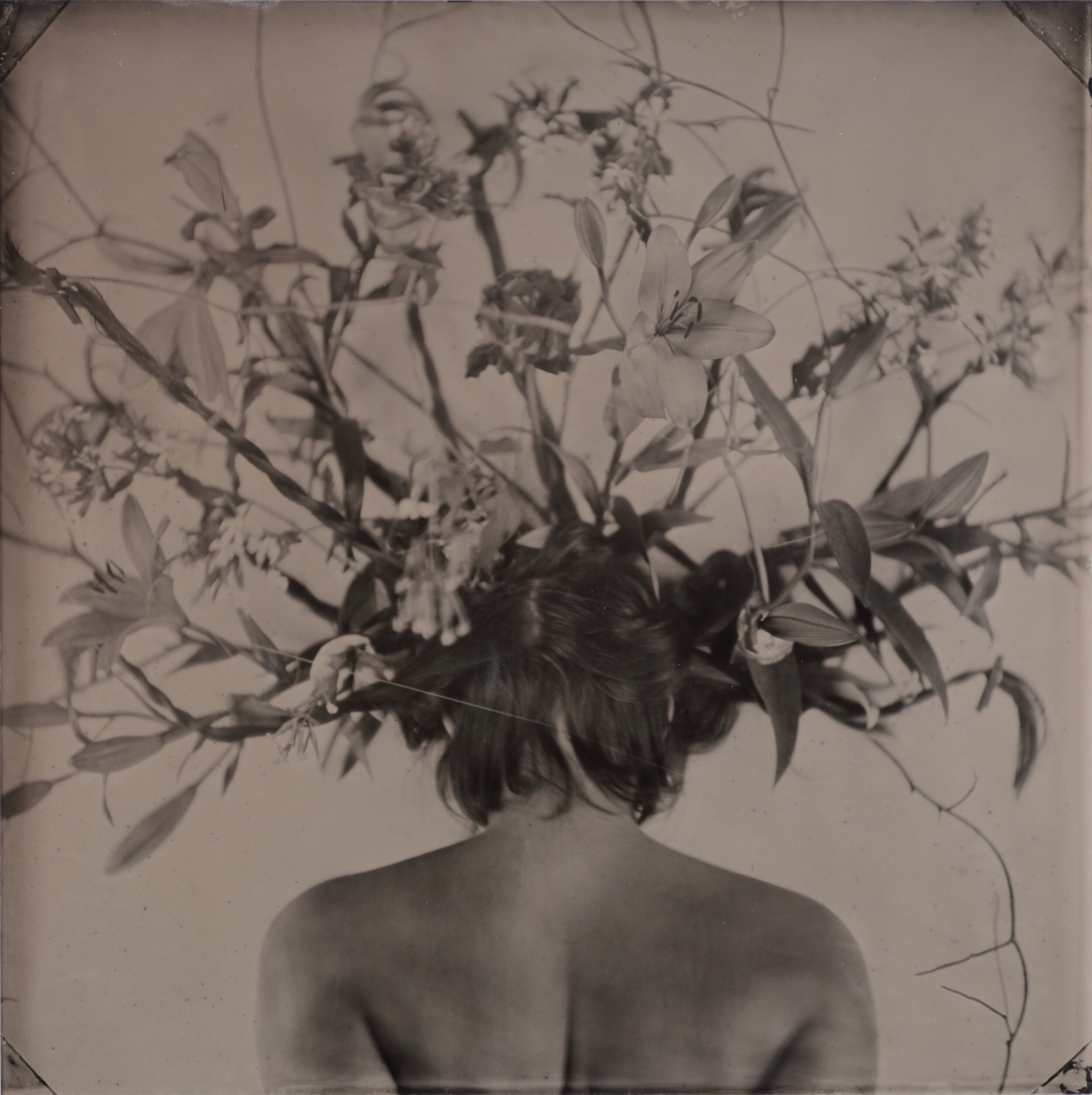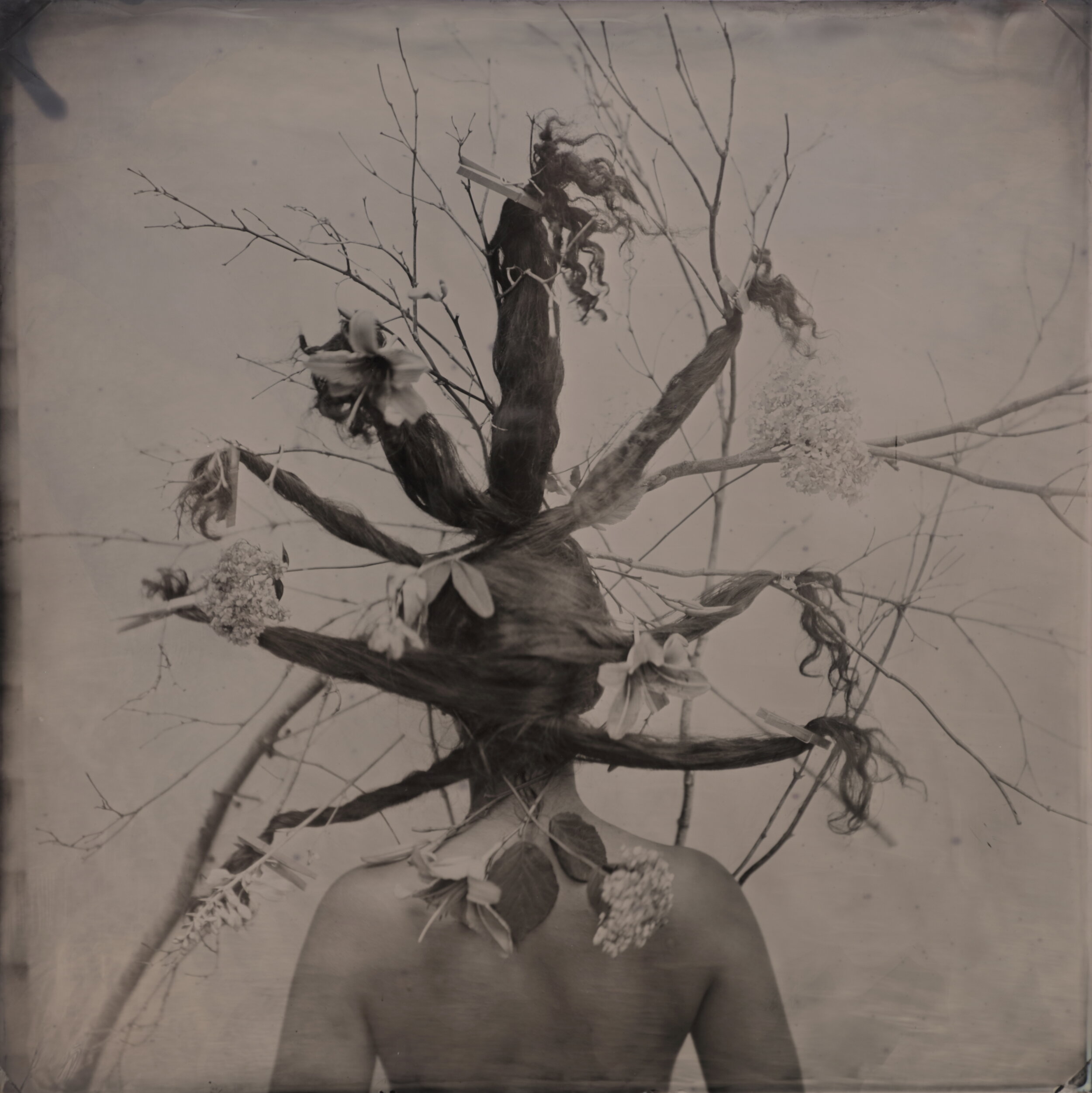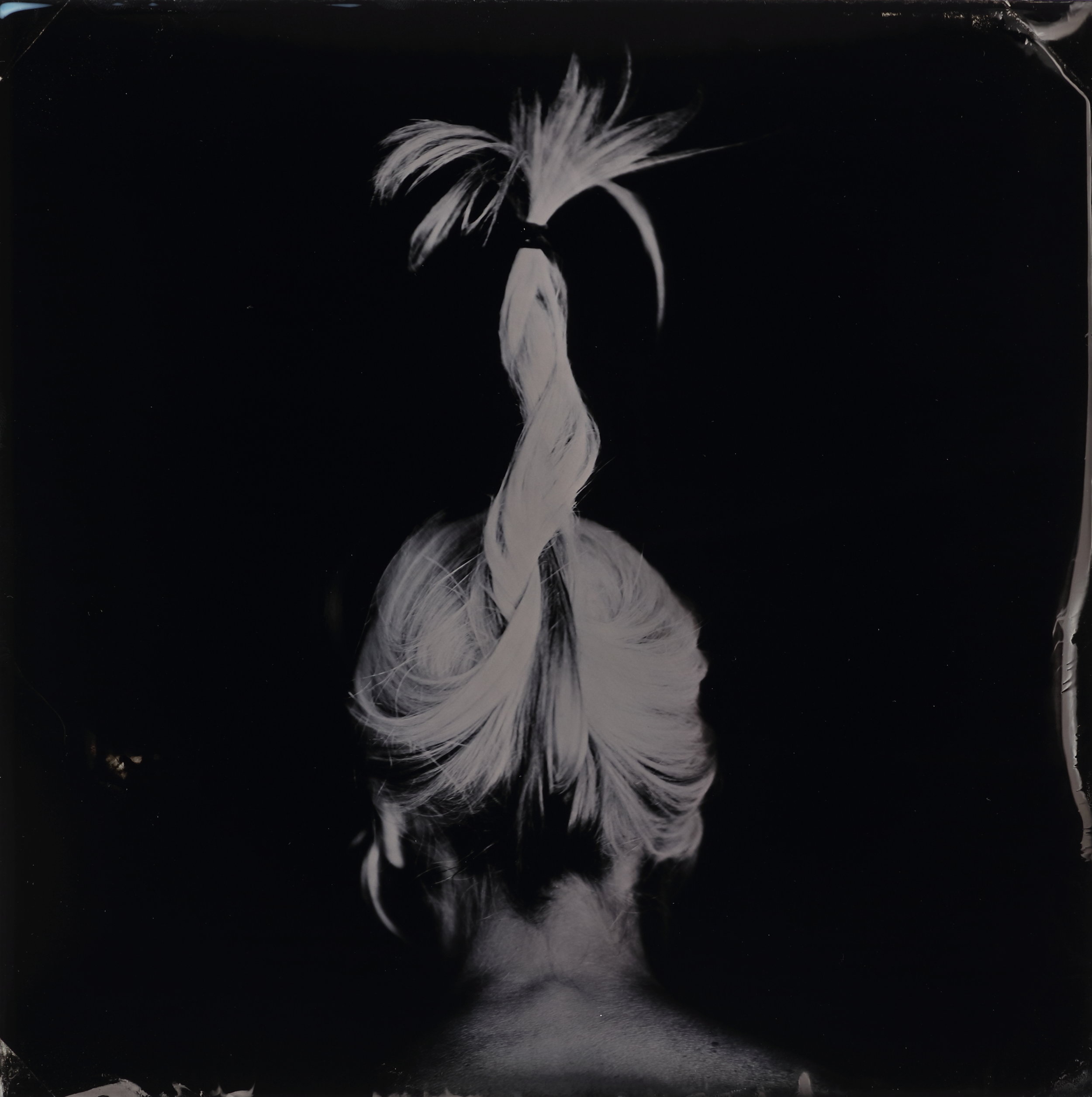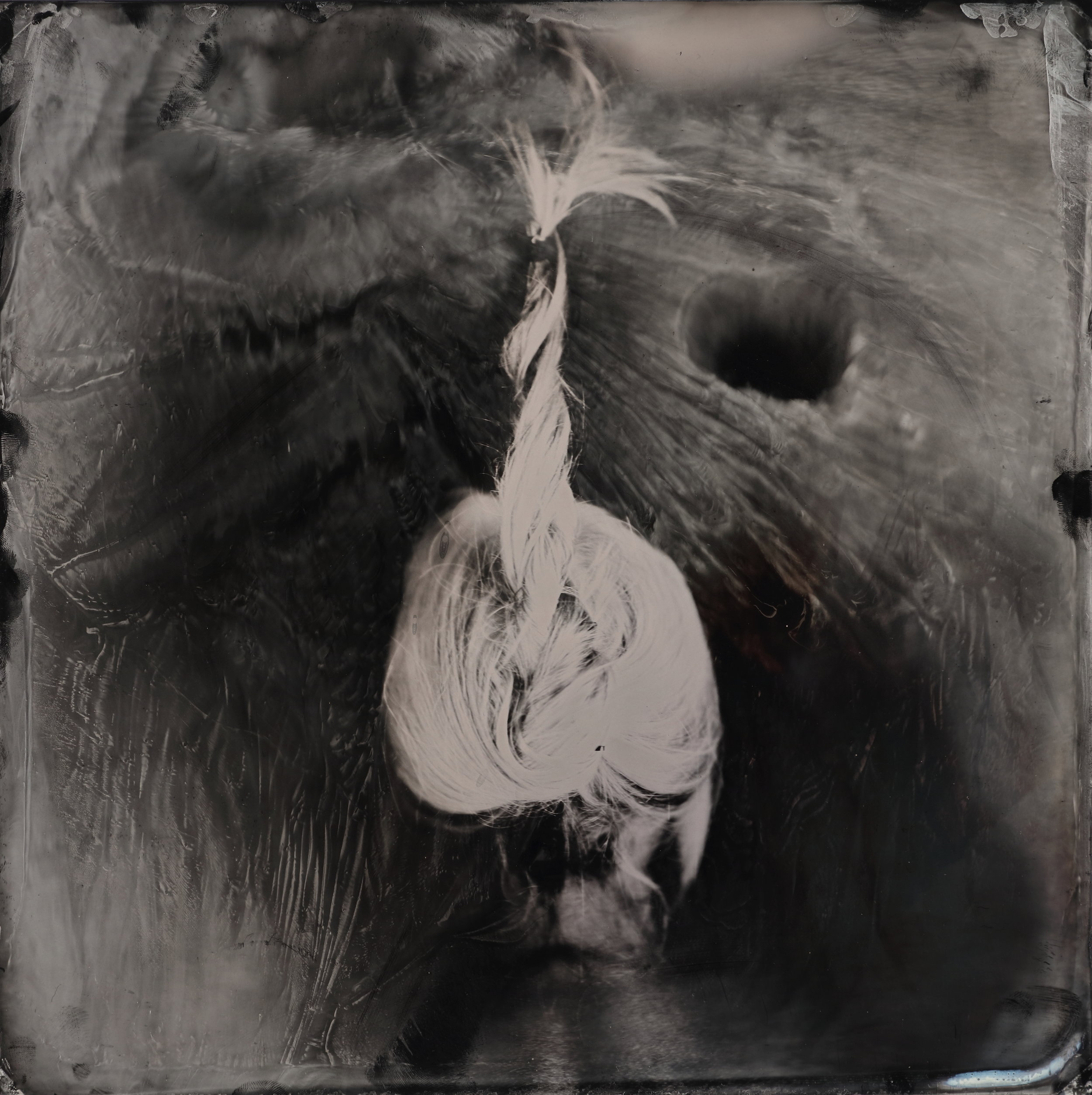Since the beginning of human history, hair has held cultural and symbolic meaning. It is a marker of ethnicity, social class, identity, gender, sexuality, age, sickness, and health. Women’s hair especially is woven into mythology, religion, politics, culture, and art.
Rachel Portesi makes hair portraits utilizing the early photographic method of tintype. She works collaboratively with her models to create intricate—one might say baroque—hair styles. Pinned to walls or other scaffolding, the extravagant hair designs are often embellished with flowers, becoming living sculptures rooted in the human body. Hair is often referred to as a woman’s “crowning glory.” Portesi’s “crowns” befit Ceres/Demeter, goddess of growing plants and motherly relationships; and Diana/Artemis, goddess of the hunt, wild animals, and the moon.
Creating a tintype requires the subject, or model, to remain absolutely still for thirty seconds after the lens cap is removed and light floods onto the prepared wet plate. This wet process results in inconsistencies, with the deeply toned surface of each image retaining the traces of its distinctive making. Unlike digital photography, tintypes are singular objects, each print as unique as the portrait sitter. —Mara Williams, Chief Curator Brattleboro Museum

